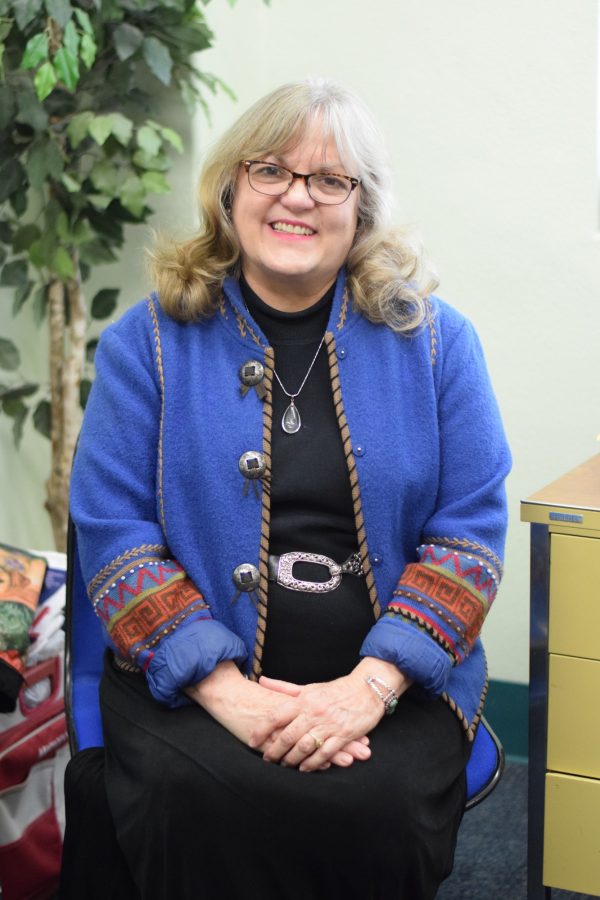Professor Stephanie MacFarland has been training the next generation of disability inclusion advocates since 1981. Her work has spanned across the country but came back home to the University of Arizona, where she works in the College of Education’s Department of Disability and Psychoeducational Studies.
“When [my students] graduate, they become advocates and experts in supporting inclusive education,” MacFarland said. “It’s really a grassroots effort and a national effort as well.”
MacFarland’s decades-long career in teaching was recently awarded with the June Downing Breakthroughs in Inclusive Education Award.
RELATED: Rideshare driver goes beyond the destination for students
This award is given by TASH, a group dedicated to promoting inclusion of children and adults with significant disabilities. It was created to honor the work of an individual or a school that contributes to the creation of equal opportunities and the advancement of inclusive education.
MacFarland has been working in disability studies since she received her masters from Boston College in 1981. Since then, she has worked as a teacher and a consultant, gone on to receive her Ph.D and is now the director of the Teacher Preparation Program in Severe and Multiple Disabilities at the UA.
In her teacher prep program, MacFarland chooses to focus on implementation and inclusion by preparing teachers with helpful skills for working with students with disabilities.
After receiving a federal grant to further her advocacy of inclusive education, MacFarland helped to start the Focusing Opportunities with Community and University Supports Program, or Project FOCUS, at the UA in 2010. Project FOCUS is a transition program for students with intellectual and developmental disabilities from ages 18 to 22. Project FOCUS prides itself on the fact that all of its students involved are fully integrated with peers of the same age in the same classes for their program or major, according to MacFarland.
MacFarland shared why she believes Project FOCUS is so successful and impactful for the UA.
“Having all the best practices in a transition program here at the University of Arizona campus has been phenomenal to spreading advocacy,” MacFarland said. “With the students, faculty, Disability Resource Center, they can feel like any student going here with the amount of influence and support from the other departments and programs.”
MacFarland was nominated for the Downing Award by UA colleagues Phyllis Brodsky, assistant professor of practice with the Office of Instruction and Assessment, and Kirsten Lansey, technical expert in the College of Education.
The nomination process began in July and MacFarland found out she was receiving the award in October. The two colleagues did not tell her that she was being nominated to make it a more special surprise.
Lansey has worked closely with MacFarland ever since they first met — when Lansey was a student in MacFarland’s master program six years ago — and continues to hold MacFarland in high regard.
“[The award] recognizes teachers and advocates who are ultimately an advocate or teacher for individuals with disabilities to be fully included, both in education and society,” Lansey said. “She has dedicated her life to that and we all thought it would be a great opportunity to nominate her.”
Even after receiving this honor, MacFarland continues to recognize the support of those who are also working to create inclusion. MacFarland has worked closely with College of Education deans, Division of Developmental Disabilities, Arizona Department of Education and Vocational Rehabilitation.
Due to the support and encouragement of these groups, MacFarland has been able to see the importance and need for collaboration in inclusion. Many school districts have begun work to create inclusion in their classrooms after seeing that it can be done, and has been done, by MacFarland.
RELATED: UA alumna’s experience with fertility issues leads her to help others conceive children
June Downing, for whom the award is named after, was influential in both MacFarland’s life and her career. MacFarland received her Ph.D from the UA and studied under Downing during that time, then left Arizona after graduating to work at other schools but ultimately returned to the UA to continue working with Downing.
While working with Downing, MacFarland first understood that inclusion would be an ongoing advocacy when Downing challenged her to ask “Why not?” in the face of those that doubted the possibility of full inclusion.
MacFarland’s close, personal relationship with Downing is part of what made receiving this award so special.
“I’m very honored because my respect for June Downing is immense. For me, it’s because this award was in her honor,” MacFarland said. “She was a friend and mentor of mine and it just meant the world to me. It was like winning a Nobel Prize.”
Follow Lauren Rowe on Twitter








